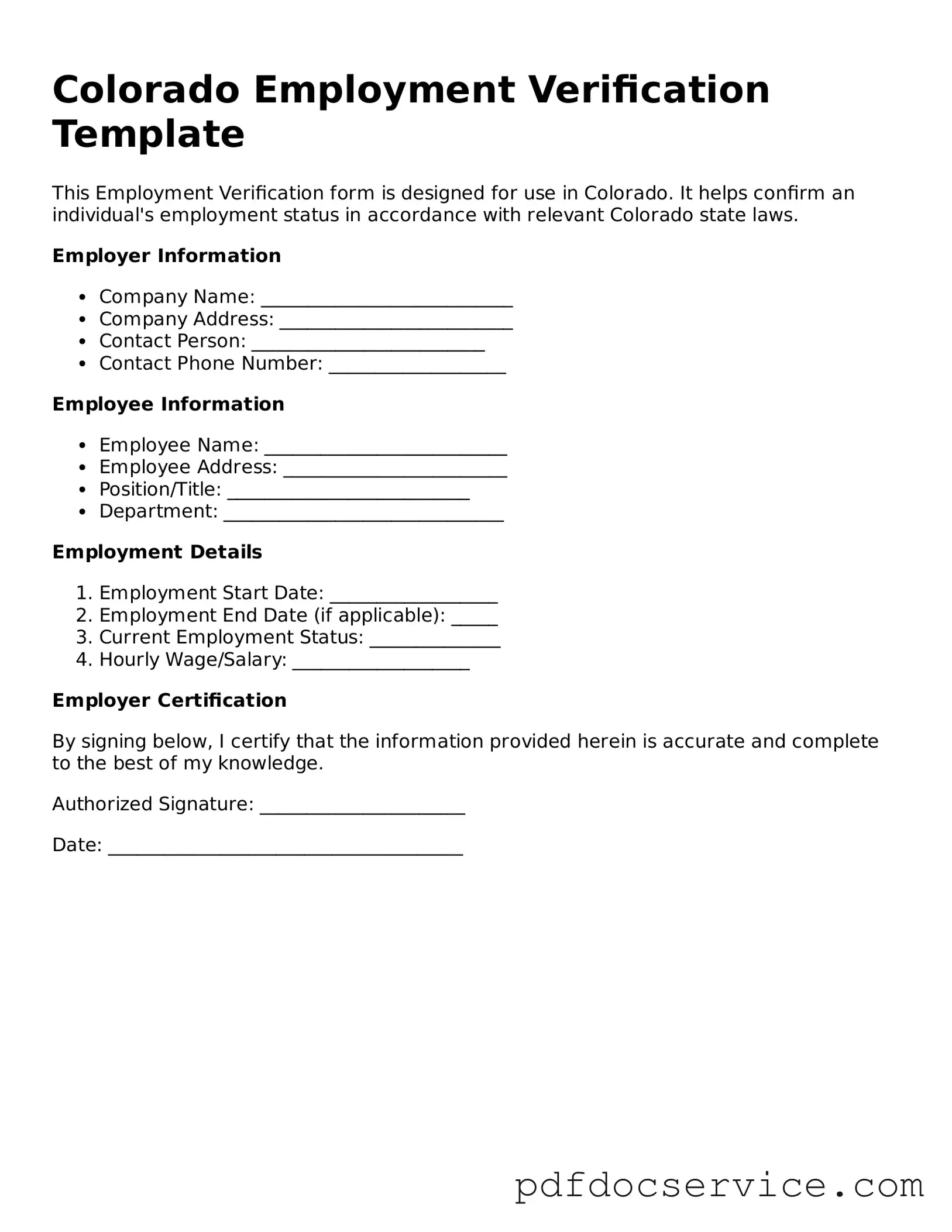Printable Employment Verification Template for Colorado
The Colorado Employment Verification form is a document used by employers to confirm the employment status of their workers. This form helps ensure compliance with state regulations and provides essential information for various purposes, such as loan applications or rental agreements. Understanding how to complete and submit this form is crucial for both employers and employees.
Open Employment Verification Editor

Printable Employment Verification Template for Colorado
Open Employment Verification Editor

Open Employment Verification Editor
or
Get Employment Verification PDF
Finish the form now and be done
Finish Employment Verification online using simple edit, save, and download steps.